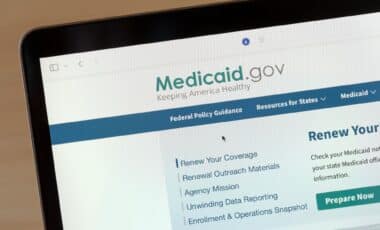The UK’s general election is right around the corner, with all the major parties unveiling their plans to manage the persistent cost of living crisis.
Cost of Living Payments and Support : Key Dates for July 2024
In the wake of the soaring inflation of the past few years, extremely high prices persist, as many households struggle to pay their bills, buy food or pay their rent.
Inflation finally reached the Bank of England’s 2% target this June, making it the first time in the past three years. While this is some great news for the economy, falling inflation does not automatically mean that prices are going back to the way they previously were, it just means that they have started rising less fast.
The cost of living in the UK remains a key issue, with all parties sharing their plans to get the UK’s economy back on track and bring prices back to affordable levels.
According to recent studies from the Joseph Rowntree Foundation, nearly a million people are only £10 away from poverty, while 3.2 million are just £40 clear. They have highly encouraged party leaders to put in more effort in order to tackle hardship in the country.
The government’s latest annual statistics on poverty-stricken families depict a grim scenario of the economic situation in the UK. They indicate that absolute poverty has surged for two years in a row, with nearly a million more impoverished people in 2022/23 than in 21/22.
At the same time, the Trussell Trust revealed in May that their food banks provided 3.1 million emergency food parcels over the last year – the highest number ever recorded in their history.
To cope with these difficult economic times, here is an outline of the financial support available to low-income households this July and key dates for benefits holders to look out for:
Standard Benefit Payouts
The usual benefits and pensions payments will be going out mostly as normal in July. These include:
- Universal Credit
- State pension
- Pension credit
- Child benefit
- Disability living allowance
- Personal independence payment
- Attendance allowance
- Carer’s allowance
- Employment support allowance
- Income support
- Jobseeker’s allowance
As no bank holidays are expected in July, you can expect to get your payments on the scheduled days.
The DWP has also warned 500,000 benefit recipients that they will soon need to act fast as six ‘legacy benefits’ are substituted by Universal Credit.
For more details on how and when state benefits are provided, visit the government’s website.
According to a Policy in Practice report issued last year, nearly £19bn worth of benefits goes unclaimed a year – they suggest a helpful calculator to work out what you might be eligible for.
Household Support Fund
In his spring Budget, Jeremy Hunt affirmed the Household Support Fund (HSF) would be prolonged for 6 months beyond the scheduled 31 March deadline.
The HSF refers to a fund given to all local councils to assist vulnerable families in their area. Councils are given the freedom to distribute the funds however they feel is best.
For example, some have handed cash grants, supermarket vouchers, or energy bill assistance. In order to find out what help may still be available, you will need to visit your local council’s website.
To find out the kind of support that is available to you, the End Furniture Poverty charity has provided a useful assistance finder tool.
Additional Assistance Available
Budgeting advance loans
The government provides a ‘budgeting advance loan’ for anyone on Universal Credit who faces an urgent financial deficiency. Before the budget, the reimbursement period for these loans was 12 months. It has now been extended to 2 years.
This type of loans is interest-free, and automatically deducted from Universal Credit payments. You can obtain an ‘advance’ of up to:
- £348 if you’re single.
- £464 if you have a partner.
- £812 if you have children.
Charitable grants
If you are facing financial hardship, you may qualify for certain charitable grants. A wide range of grants can be available depending on your circumstances.
However, in order to be eligible for these grants, you are required to meet specific criteria and only be able to provide limited funds.
Charitable grants are accessible for people living with a disability or an illness, carers, bereaved, unemployed, students – and many more. The Turn2us charity provides an online tool to search for grants which you may qualify for.
Energy provider help
Many energy suppliers provide assistance for those who struggle to pay for their energy bills. These include Scottish Power, EDF, E.ON and Octopus. In order to find out if you are eligible, it is better to contact your energy provider.
British Gas also offers a grant of up to £2,000 to customers of any energy provider. In order to qualify for the grant, you will need to meet specific criteria, and can apply on the British Gas Energy Trust website.
Council tax reduction
If you fulfil specific requirements, or are on certain benefits, you may be able to submit an application for a discount on your council tax discount of up to 100%.
If you are facing severe financial hardship and can’t afford to pay your council tax, your local council may still be able to offer you an optional reduction.
To submit an application for a council tax reduction, you can contact your local council through the government’s website.
Up to 30 hours free childcare
All working parents in the UK are currently granted 30 hours of free childcare for children aged 3 to 4. Since April 1, this entitlement was expanded to include 15 hours of free childcare for 2-year-olds.
You must submit your application online and reconfirm your eligibility every three months, in time for each school term. Working parents are also able to apply for tax-free childcare, giving back 20% for every 80% you dedicate to childcare, which can reach a maximum of £500 per year.
Two more expansions to free childcare are planned in the coming years:
- September 2024: All children from the age of nine months can get 15 hours of free childcare.
- September 2025: All children under five can get 30 hours of free childcare.










Why give it to your local councils to give the money out and dish it how they want why don’t you just do another cost of living paymeant even if its 50 pound so everyone gets it
Do I apply for it as I am on UC